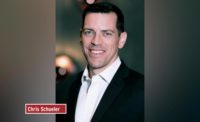“I take a lot of lessons from the community policing model, which is policing through customer service,” says Ryan King, Manager of Safety, Security and Emergency Management for Central Florida Health (CFH). “We realize that people come into our facilities are under stress. If someone is here, chances are they are having a bad day. We need to open the dialogue and let people know that we can help them. It disarms the opportunity for crime and security risks to take place.”
CFH in Leesburg, Florida, provides services to Lake, Sumter and Marion counties through inpatient acute hospital services at The Villages® Regional Hospital and Leesburg Regional Medical Center, inpatient rehabilitation services at TVRH Rehabilitation Hospital and diagnostic laboratory services at several locations.
King began his security career in 1996 as a security officer, then with roles in project management for security technology installs and running metrics and analytics. He became very active in IAHSS and the public safety role as an Administrative Captain in a large hospital system located in Florida. Upon finishing his Masters in Justice and Security Administration, he moved to his current position with CFH.
He enjoys the unique risk and security challenges within the healthcare sector. “Every day at work is a new challenge,” he says. “Healthcare is exciting and quickly evolving. Instead of concerns simply for your place of employment, you are truly required to keep a pulse on the whole of your community as any disaster or change in the community may affect the hospital. A common statement I often tell folks is ‘All roads lead to the hospital’ in that we end up involved in a large percentage of our population’s care over the course of a few years. Where else can you investigate a criminal matter in the morning and help someone feel safer in the afternoon?”
On King’s team are 45 security officers who work with CFH risk management, clinical leaders, legal and HR teams, in addition to local law enforcement, corrections, EMS and the state and county Department of Health.
“Hospitals are part of the U.S. critical infrastructure, and the skill set for security is greatly expanding,” King explains. “We are largely doing a proactive role to prevent loss of assets, reputation and safety. However, more and more we are becoming response driven as well, for decontamination procedures, crowd control, and other response scenarios that are strictly aligned with the clinical market, such as Ebola and victims of active shooters. It is truly a large set of skills, and the training and other resources for such skills are not readily available and not usually encapsulated in a single career model.”
He attributes much of his success to C-Suite support. “The professionalism of the department, the equipment we have at our disposal and the ‘equal playing field’ that we have with nursing and clinical leadership is amazing,” he explains. “We don’t feel like a ‘support service,’ but as part of the daily lives of the rest of our staff and hospital. In today’s world of large casualty incidents such as Pulse [Nightclub shooting], it takes a village, and we can all learn from each other. I have received several letters of appreciation from staff about our officers taking the time to find lost belongings, help them to cars after hours and other seemingly simple tasks that shows increased compassion toward that patient and family that they remember for a long time.”
Success has also come from metrics and making adjustments based upon that data. “For security to be truly effective, you must be of use and not in a theoretical standpoint,” he says. “The department has taken on duties and goals with definite outputs that reduce loss and threat opportunity. We track productivity of patrols through advanced mobile software, gauge call volume and adjust staff or patrol zones based on seasonal fluctuations and changing crime patterns, and we combine our CAP® score analysis on a monthly basis with our local law enforcement numbers and internal customer service and incident reports to determine areas of need. Our goal is a three-minute response time to anywhere on the campus and 15 minutes to our off-campus locations. And because you can’t always be objective about your performance, I send out semi-annual surveys to our clinical staff with specific questions and ratings on both the effectiveness of the security department as well as the overall feeling of safety they have while at work. All of this is used to continuously morph our department design to what is needed.”
In his free time he enjoys spending time with his wife and four children and is very active in personal fitness. “I enjoy philosophy, and I am involved in a group that meets virtually every week. Other security markets and law enforcement is largely to a letter of law or policy. However, with healthcare security, we are dealing with people and changing acuity. This requires great flexibility and compassion in your approach. We work in that grey area much of the time.”
Critical Issues
1. Budgets
2. Outdated Technology/Improving Technology
3. Increased Mental Health Patients




